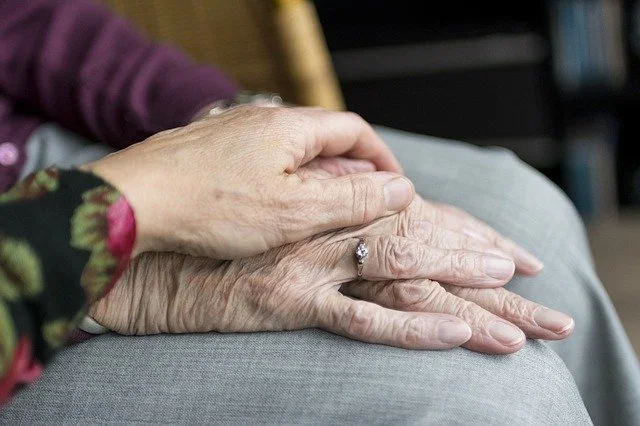Drug and Alcohol Rehab in Harlow
Our drug and alcohol treatment and recovery centres are the definitive answer for those suffering from various drug and alcohol addictions. At Rehab Recovery here in Harlow, we are able to offer individually tailored drug and alcohol detox and rehabilitation plans.
We offer residential detox, stabilisation and rehabilitation that focussed on primarily on you and your needs.
Drug & Alcohol Statistics in Harlow

- Between 2017 and 2019, the number of drug poisoning-related deaths across Essex increased by 15% compared to 2013 to 2015.
- In 2021 there were 60 deaths related to drug poisoning in Essex. Of this number, 2 deaths occurred in Harlow.
- Although there were 24 deaths related to drug misuse in Essex during 2021, 0 of these were in Harlow, which decreased from 3 in the previous year. [1]
- In the period from 2016 to 2017, there were 43.6 alcohol-related deaths per 100,000 people in Essex.
- Although this is lower than the rate for England as a whole, which is 46 per 100,000, this was higher than the rate for the East of England, at 41.9 per 100,000.
- The same pattern occurred for alcohol-related hospital admissions from 2016 to 2017, with 583 admissions per 100,000 in Essex, and 579 per 100,000 in the East of England.
- Harlow had one of the highest rates for hospital admissions from all localities within Essex, with the figure reaching 611 per 100,000 during this period. [2]
What is Alcohol and Drug Rehab?

For individuals suffering from drug or alcohol addiction in Harlow, rehab is an abstinence-based treatment programme that aids long-term recovery from drug or alcohol abuse.
Most rehabilitation programmes are provided in a substance-free residential setting, giving individuals a break from their home environment.
This is particularly beneficial for those who may have struggled with recovery in a community-based setting due to triggers and influences from others.
Here, they will receive care from medical staff and addiction specialists who will support them through detoxification, therapy, and their ongoing journey to recovery.
How to Tell If You Need Drug or Alcohol Rehab in Harlow

It can be difficult for individuals to accept the fact that they have an addiction and reach out for the help that they need.
If you feel that you or a loved one are struggling with drug or alcohol abuse, there are some common signs to look out for which indicate that you may benefit from attending rehab in Harlow. These include:
- Tolerance to drugs or alcohol increasing
- Being secretive, for example hiding empty bottles
- Not being able to start the day without drugs or alcohol
- Nausea and vomiting
- Insomnia
- Becoming irritated easily
- Struggling to maintain relationships
- Worsening finances
- Worsening self-care and hygiene
There are also several screening tools that individuals can use to identify the severity of their addiction and whether rehab in Harlow would be beneficial to them.
1. The CAGE Questionnaire
The CAGE questionnaire is typically used by medical professionals to help identify whether an individual has significant issues with drug or alcohol abuse.
The tool consists of 4 questions that an individual will be asked, which are:
- C- Do you ever feel that you should cut down on your alcohol or drug use?
- A- Have you ever felt annoyed after being criticised for your alcohol or drug use?
- G- Do you ever experience guilt about your use of alcohol or drugs?
- E- Have you or do you frequently use drugs or alcohol as an eye-opener in the morning or to get rid of a hangover?
When an individual answers yes to two or more questions, this indicates a moderate to severe addiction that should be addressed at drug and alcohol treatment centres in Harlow.
2. The ASAM Criteria
The ASAM criteria provide a set of guidelines which indicates whether or not individuals should be placed into a rehab facility in Harlow.
There are six dimensions used for assessment, which are:
- Previous and current experiences with alcohol and drugs
- Medical history
- Mental health conditions, history and needs
- Readiness to implement change
- Risk of relapse
- An individual’s living situation
After being assessed against this criterion, the results can be used to decide on the appropriate level of care for an individual.
These levels range from outpatient treatment to intensive inpatient programmes, which may involve partial hospitalisation.
3. The AUDIT Screening Tool
The AUDIT tool, or Alcohol Use Disorders Identification Test, is a questionnaire that indicates the severity of an individual’s addiction.
Originally developed by the World Health Organisation, it also helps to identify the physical and mental impacts of an individual’s addiction and the severity of their withdrawal symptoms.
Once the test has been completed, the scores will be added up:
- 1 to 7 – Indicates a low risk of substance dependency
- 8+ – Suggests a moderate substance dependency
- 13+ – Shows a severe dependence on drugs or alcohol and the individual should enter rehab immediately
What Are the Benefits of Drug and Alcohol Rehab in Harlow for Me?

When an individual is addicted to drugs or alcohol, they are likely to be experiencing several symptoms that cause discomfort on an everyday basis. These symptoms include:
- Nausea and vomiting
- Headaches
- Dizziness
- Shaking
- Fever or chills
- Fluctuating weight
- Skin sores
- Irritability
- Depression and anxiety
If you or your loved one do not seek treatment, you are putting yourself at risk of experiencing even more severe health complications, including stroke, cancer, heart and liver disease, and eventually death.
Whether an individual has a mild or severe addiction, entering rehab in Harlow will lower the risk of them experiencing these complications.
Every individual will receive a bespoke treatment plan that will not only help to break their physical substance dependency but will also provide psychological treatment to address the reasons underlying their addiction.
This will allow individuals to understand their triggers and how to deal with them so that they can maintain their sobriety after completing a course of treatment at rehab.
Another of the benefits of entering rehab in Harlow is that individuals have access to round-the-clock care to support them through every part of their recovery journey, from detox to aftercare.
When individuals remain at home during their recovery, they are at risk of becoming distracted by their home environment or triggered by those who surrounded them during the height of their addiction.
Having a break away from this environment and entering rehab in Harlow, therefore, gives individuals the chance to focus solely on their recovery
What Are My Options in Terms of Rehab in Harlow?

There are different types of rehab in Harlow available, which ensures that every individual suffering from addiction can access the treatment that they need.
These treatment options are provided by several organisations, including:
- Private residential rehab clinics
- The NHS
- Charities
- Support groups, such as Alcoholics Anonymous (AA)
These organisations offer one or both rehab treatment models, which are inpatient or outpatient care.
When an individual chooses outpatient services in Harlow, they will attend a clinic during the day a few times a week and then return home at night.
Here, they will receive medication as well as individual and group therapy. This type of rehab is beneficial for those who feel that remaining at home surrounded by loved ones would be best for optimal recovery.
During an inpatient rehab programme, individuals will move away from their home environment and remain in a residential rehab centre for the duration of their treatment programme.
Patients receive round-the-clock care, which is ideal for those going through the detox process as their medication can be altered to help control drug or alcohol withdrawal symptoms.
NHS Free Addiction Services in Harlow

For those who are worried about the cost of private rehab treatment, the NHS offers some free treatment options in Harlow.
These can be accessed through your GP, who can conduct an assessment and refer individuals to the appropriate treatment services.
Although these services are free, they do have some limitations.
For instance, waiting lists are often long, as NHS addiction services have limited funding.
Many NHS counsellors are not addiction specialists and the current treatments that individuals receive may therefore be of lower quality in comparison to private treatment services.
There are also limited spaces for NHS inpatient rehab in Harlow, meaning that those with severe substance dependency may be subject to long waiting lists.
This could cause their addiction to worsen, lead to severe health complications, and lower their chance of long-term recovery from addiction.
The Challenges of Outpatient Services in Harlow

Although outpatient services in Harlow are beneficial for those who wish to maintain a job or have children to look after, they may not be far-reaching enough for those service users with severe drug or alcohol addiction.
This is because those who choose to remain at home may frequently encounter circumstances that trigger their addiction, such as the social circles that they were part of. These individuals are therefore at a higher risk of relapse.
Many outpatient services are free, such as those provided by charities and the NHS, so do not have the same funding as private inpatient rehab.
This means that waiting lists are long and service users may not receive the same comprehensive addiction treatment programme as inpatient care.
Admissions to Rehab in Harlow

Before arriving at a rehab clinic in Harlow, individuals will undergo an initial assessment as part of the admissions process to identify their treatment needs.
For instance, the clinic will need to conduct a comprehensive screening process to be aware of:
- The substances an individual is dependent on
- How long they have been taking these substances
- How frequently do they consume these substances
- How much of the substance they consume
This is often conducted by medical professionals over the phone so that everything is prepared when an individual arrives.
Upon arrival, individuals may also see a doctor who is an addiction specialist for a consultation.
This consultation will address an individual’s medical needs, including any medications they currently take, and will assess whether they need to complete a medically assisted detox.
Dual Diagnosis Treatment

Upon admission, individuals will also undergo a psychiatric evaluation.
This will help psychiatrists to identify whether the individual has any mental health conditions alongside their drug or alcohol dependency which may also require treatment.
Recovery workers can then ensure that individuals undergo dual diagnosis treatment, which is a treatment for those who have one or more co-occurring mental health issues or substance dependency disorders.
Dual diagnosis is common amongst those entering rehab, as individuals often use drugs or alcohol to mask the symptoms of mental health conditions such as:
- Depression
- Anxiety
- Schizophrenia
- Borderline Personality Disorder (BPD)
- Post-Traumatic Stress Disorder (PTSD)
- Bipolar
What Happens During Alcohol and Drug Rehab in Harlow

We understand that the rehab process can be daunting.
However, it’s important to know that those entering rehab in Harlow will encounter a supportive, compassionate, and caring environment to help them on their recovery programme.
Individuals will be greeted by friendly rehab staff, including addiction specialists, doctors, and mental health professionals, who will ensure that all of their medical and emotional needs are met during their stay.
Once admitted to rehab in Harlow, there are two distinct stages that individuals will be required to go through: detox and therapy.
Medical Alcohol and Drug Detox
As part of the assessment conducted when an individual arrives at rehab in Harlow, it will be decided whether they need detox medication.
The detoxification or detox phase aims to break an individual’s physical dependency on drugs or alcohol.
This process is supported by medication to help control dangerous withdrawal symptoms that can occur when an individual suddenly abstains from substances that they are reliant on.
For example, individuals dependent on alcohol may be prescribed an alcohol detox medication such as Librium to help them through the process.
Not all individuals entering rehab in Harlow will be required to go through the detox phase, as not all substances are physically addictive.
For instance, drugs such as cannabis and cocaine are only psychologically addictive, so those using these substances will only need to undergo the therapy stage of rehab and will not need detox medication.
Medically supervised detox is therefore only necessary for those with a dependency on substances such as:
- Alcohol
- Opiates
- Barbiturates
- Benzodiazepines
Therapy for Alcohol and Drug Addiction

After detox has been completed, individuals can then move on to the rehabilitation phase and the healing process can begin.
This treatment is person-centred and will consist of a wide range of therapies depending on the needs of each patient.
For instance, rehab clinics in Harlow often make use of talking therapies such as Cognitive Behavioural Therapy (CBT) and Dialectical Behavioural Therapy (DBT) in one-to-one sessions.
Individuals may also benefit from techniques such as Motivational Interviewing, which aims to remind them of the reasons why they chose to recover in the first place.
One of the benefits of entering rehab in Harlow is that individuals can take part in group therapy with others who are also going through the recovery process.
These groups will make use of the talking therapies listed above but may also focus on holistic and complementary therapies such as art therapy, music, and yoga.
These complementary therapies aim to show individuals that they can find reward and pleasure from other sources outside of drugs and alcohol.
They also provide individuals with something that they can focus on when they leave rehab in Harlow, which helps them to build healthy habits in the long run.
Individuals may also be able to benefit from family therapy programmes, which help to resolve familial conflict which may have triggered an individual’s addiction.
It also gives family members the chance to voice their concerns and helps to heal broken relationships, so that the individual has a strong support system when they leave rehab in Harlow.
Aftercare Rehab Treatment

All good rehabs in Harlow will offer residents a bespoke, 1-year free aftercare programme once their inpatient treatment has finished.
This aims to help individuals maintain their sobriety in the long term.
Each individual will be provided with a relapse prevention plan, which will give them strategies to put into action when they encounter triggers or cravings which could lead to relapse.
For example, they may be encouraged to use the HALT technique.
This consists of four questions that individuals should ask themselves when they begin to crave a substance on which they were once dependent.
The questions are:
- H – Am I hungry?
- A – Am I angry?
- L – Am I lonely?
- T – Am I tired?
By taking a moment to ask these questions before taking drugs or alcohol, individuals will be encouraged to listen to their bodies and consider whether they are experiencing other cravings that they should instead concentrate on fulfilling.
This is therefore an effective technique for preventing relapse once an individual leaves rehab in Harlow.
Individuals also have access to regular free therapy sessions with addiction specialists who will be keen to support their ongoing therapy outside of the clinic.
Addiction Support Groups in Harlow
Another aftercare option for those leaving rehab in Harlow is attending mutual support groups.
Support groups such as Alcoholics Anonymous (AA) and Narcotics Anonymous (NA) are based in the local community and hold regular meetings for those struggling with alcohol or drug addiction.
These groups are free to attend and give individuals a chance to share their recovery struggles and achievements with other like-minded individuals, to keep them on track during their recovery journey.
FAQs

Below, we provide some answers to commonly asked questions about the addiction rehab process:
1. How Can I Get a Loved One into Rehab in Harlow?
When a loved one is struggling with drug or alcohol addiction, we understand how difficult it can be to get them to accept the help that they need.
If this is a situation that you are facing, you may benefit from an intervention.
Facilitated by a professional interventionist, an intervention is a gathering organised by friends and family members of an individual with a drug or alcohol dependency.
The gathering aims to demonstrate to the individual how their destructive behaviours are harmful to themselves and those around them.
It also encourages the individual to accept help from their loved ones and commit to entering rehab in Harlow.
Interventions should be properly planned to ensure that they are successful and that they do not come across as patronising.
Before staging an intervention, loved ones should therefore:
- Gather information about the individual’s consumption of drugs or alcohol
- Come up with specific examples of how the individual’s addiction is affecting those around them
- Research treatment methods specific to the individual’s addiction
- Establish consequences for continued drug or alcohol misuse
2. How Long is Rehab in Harlow?
The amount of time an individual spends in rehab in Harlow will depend on their unique circumstances.
Some patients enter rehab only to use the detox clinic, which lasts for 7 to 10 days.
However, for an individual to maintain their sobriety in the long term, it is recommended that they remain in rehab after medical detox to undergo therapy.
This is because therapy addresses the psychological health issues underlying their addiction and helps to identify triggers which can be avoided in future.
Most residential treatment programmes last from 14 to 90 days, and the optimal length of stay recommended for individuals suffering from addiction is 60 to 90 days.
This length of time gives individuals the chance to build good habits and put strategies into place that will allow them to live a substance-free, healthier life outside of rehab.
However, there is evidence to suggest that longer treatment programmes are most effective for individuals with a severe dependency or a dual diagnosis, especially for those whose home environment is toxic or highly triggering.
Research suggests that for those spending more than 6 months in a rehab treatment programme, there are recovery success rates of 68 to 71%. [3]
3. What is the Cost of Alcohol and Drug Rehab in Harlow?
When it comes to the cost of rehab in Harlow, it is firstly important to note that this should not prevent you or a loved one from recovering from drug or alcohol addiction.
In the long run, the cost of maintaining addiction will be much higher. This is not only in terms of financial cost, but also the cost to friendships, relationships, and the health ramifications of long-term substance abuse.
Also, if you feel that private residential rehab treatment would be the most effective form of treatment for you or a loved one, then you may be able to get funding for the treatment through a health insurance provider.
The cost of a 30-day stay in a rehab clinic in Harlow ranges from £5000 to £10,000 depending on the clinic’s facilities, accommodation, and whether or not an individual requires detox.
4. Can I Get Help for Drug and Alcohol Addiction If I Am Under 25?
Individuals who are 25 and under can attend rehab clinics in Harlow.
There are also specific treatment services for those under 25 who are affected by drug and alcohol addiction, such as the Essex Young People’s Drug and Alcohol Service (EYPDAS).
This is aimed at those suffering from addiction or those who have a family member with a substance dependency and offers services such as:
- Individual counselling
- Group therapy
- Interventions
- Telephone and virtual suppo
EYPDAS can be accessed through online self-referral, or through a referral from others who may be concerned about an under 25.
5. What Are the Pros and Cons of Seeking Treatment in My Local Area?
For those who live in or near Harlow and are wishing to seek residential treatment in their local area, the pros outweigh the cons.
However, it is important to consider all options when it comes to selecting the appropriate treatment for an individual struggling with addiction.
Therefore, some of the cons of seeking treatment in Harlow if you or a loved one are already based in the local area include:
- Having access to dealers that you may have used in the past
- Encountering triggers from the people around you
- Missing out on opportunities for treatment programmes outside of the local area that could be more appropriate and valuable for your needs
On the other hand, the pros of seeking treatment in the local area for those based in Harlow are:
- You will remain close to loved ones who can visit regularly and provide support more easily
- Attending a local rehab saves on travel costs, which could instead be invested in securing a place within a higher-quality rehab clinic
- Being far away during treatment can be isolating, whereas staying close to home may put individuals at ease
6. Is Rehab in Harlow Confidential?
Unfortunately, there is a stigma associated with addiction which often prevents individuals from reaching out for help and entering rehab.
Therefore, it is important to know that whether an individual chooses to enter an outpatient or residential rehab, it is illegal for clinics to release information about their stay without consent.
This means that like any other health issue, their treatment is fully confidential and employers, colleagues, or clients will not be informed.
Get Help Now

Treatment at Rehab Recovery in Harlow is highly sought after. To ensure a swift admission, contact our specialist admissions team today.
For most individuals, admission arrangements are made within 24 hours from the time you initially make contact with us.
Once you have decided to take that first step towards turning your life around, don’t delay. Make that crucial call today and see how we can help you.
You will soon begin to see just how good life can be, with positive transformations and new opportunities presenting themselves almost as soon as you begin your treatment.
For more information on detox and rehab options in Harlow, contact Rehab Recovery today on 0800 088 66 86. When you contact us, we shall outline a variety of treatment options that are available to you in Harlow. This includes both private and statutory addiction treatments.
References
[1] Deaths Related to Drug Poisoning by Local Authority, England and Wales, Office for National Statistics, https://www.ons.gov.uk/peoplepopulationandcommunity/birthsdeathsandmarriages/deaths/datasets/drugmisusedeathsbylocalauthority
[2] Alcohol and Drugs: Prevention, Treatment and Recovery, The Essex Health and Wellbeing Board, https://cmis.essex.gov.uk/essexcmis5/Document.ashx?czJKcaeAi5tUFL1DTL2UE4zNRBcoShgo=4cmydrXGmFzXnobRFtPEPS0A619X6AHarW9T7cG51t78uqgW1AFwyA%3D%3D&rUzwRPf%2BZ3zd4E7Ikn8Lyw%3D%3D=pwRE6AGJFLDNlh225F5QMaQWCtPHwdhUfCZ%2FLUQzgA2uL5jNRG4jdQ%3D%3D&mCTIbCubSFfXsDGW9IXnlg%3D%3D=hFflUdN3100%3D&kCx1AnS9%2FpWZQ40DXFvdEw%3D%3D=hFflUdN3100%3D&uJovDxwdjMPoYv%2BAJvYtyA%3D%3D=ctNJFf55vVA%3D&FgPlIEJYlotS%2BYGoBi5olA%3D%3D=NHdURQburHA%3D&d9Qjj0ag1Pd993jsyOJqFvmyB7X0CSQK=ctNJFf55vVA%3D&WGewmoAfeNR9xqBux0r1Q8Za60lavYmz=ctNJFf55vVA%3D&WGewmoAfeNQ16B2MHuCpMRKZMwaG1PaO=ctNJFf55vVA%3D
[3] Lawrence Greenfield et.al., Effectiveness of Long-term Residential Substance Abuse Treatment for Women: Findings from Three National Studies, The American Journal of Drug and Alcohol Abuse, https://pubmed.ncbi.nlm.nih.gov/15540492/


